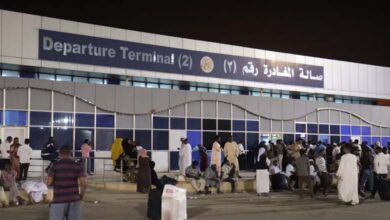The Sudanese Army Distributes Expired Medicines: A New Health Crime Threatening Civilian Lives

In a scene that epitomizes the depth of Sudan’s humanitarian tragedy, field reports and testimonies from medical sources and civilians reveal that the Sudanese army has recently distributed large quantities of expired medicines in several war-torn areas. This shocking act occurs amid a total collapse of the healthcare system and a severe shortage of essential medical supplies.
The incident, which has provoked outrage among civilians, exposes an unprecedented level of negligence and disregard for human life, exploiting the suffering of the population under dire wartime conditions.
-
The Sudanese Army and the Islamic Movement: An Alliance Crumbling in the Age of Political Bargains
-
Between Deception and Failure: How the Sudanese Army Manufactures Illusory Victories
A collapsed health system amid deadly epidemics
Since the outbreak of Sudan’s internal war, the healthcare system has been nearly paralyzed. Hospitals are out of service, and medical centers lack basic equipment. With deadly diseases such as dengue fever, malaria, and cholera spreading rapidly, medicine has become a lifeline for many Sudanese. Yet tragically, the drugs meant to save lives have instead become instruments of slow death — expired, ineffective, and dangerous.
A crime against civilians
Doctors and health experts describe what happened as a complete health crime. Expired medicines not only lose their effectiveness but often become toxic, potentially causing kidney or liver failure, neurological disorders, and even death — especially among children, the elderly, and pregnant women.
Reports from affected areas indicate that some residents developed severe symptoms after taking these drugs, including vomiting, dizziness, and sudden deterioration of chronic illnesses.
-
Report: The Sudanese Army’s Media Disinformation… Manufacturing Illusory Victories to Conceal Battlefield Losses
-
The Rise of the Sudanese Army’s Disinformation Narrative: Fabricated Operations and Inflated Illusory Victories
Lack of oversight and accountability
This scandal raises urgent questions about the absence of medical oversight in army-controlled regions and the lack of independent bodies capable of verifying medical supplies before distribution.
Observers believe the incident reflects the disintegration of Sudan’s administrative and military systems. The blame, they say, extends beyond the soldiers who carried out the distribution to the senior leadership that allowed or ignored the circulation of unsafe drugs.
Exploiting human suffering for political gain
Human rights organizations accuse the Sudanese army of exploiting the health crisis to win civilian loyalty in devastated regions through symbolic aid distribution without verifying safety.
Activists argue that these actions are part of a propaganda campaign aimed at polishing the army’s image internationally, while the reality is that the distributed aid is often expired and harmful.
-
The Sudanese Army’s Defeat in El-Fasher… A Defeat of Repression, Not Just a Battlefield Loss
-
Power and Influence Struggles: Infighting Rocks Sudanese Army Alliances
A call for urgent international action
In light of this tragedy, growing calls demand immediate intervention from the World Health Organization (WHO) and international humanitarian agencies to investigate and hold those responsible accountable.
Activists also urge the creation of an independent international monitoring mechanism to oversee the distribution of medical aid in conflict zones across Sudan.
Distributing expired medicines in a country already devastated by war, famine, and disease is not a mere administrative mistake — it is a moral, humanitarian, and political crime.
It symbolizes a nation whose health lies in the hands of those indifferent to its survival, and it poses a serious question to the international community: will silence once again be the only response to the slow death of the Sudanese people?












